|
LISTEN TO THIS THE AFRICANA VOICE ARTICLE NOW
Getting your Trinity Audio player ready...
|
Many may refer to former Nigerian Vice President Atiku Abubakar as the true definition of a fighter as he embodies one person who has not thrown in the towel regarding achieving his dreams.
A leader candidate for the upcoming presidential election, Abubakar has contested for the presidency in five general elections, and all have been in vain, yet he is still on the ballot this year. This will be his sixth shot, teaming up with running mate Governor Ifeanyi Okowa, of Delta State.
Abubakar is a big boy on the ballot for president in 2023 in the coming general elections in the west African nation of Nigeria.
Born on 25 November 1946 to a Muslim family, his father, a Fulani businessman and herder was temporarily imprisoned for preventing him from attending school. Despite this, Atiku made his way into school to earn a seat at the high table with other opinion shapers in a country with significant oil reserves and the most populous in Africa.
The 75-year-old is a powerful businessman and a well-liked leader who has dominated Nigerian politics since the country’s restoration to civilian government in 1999.
Before entering business and politics following his retirement in 1989, he worked for the Nigerian paramilitary Customs. He created a good rapport with high-ranking officials in the army like Major Shehu Musa Yar’Adua, who was instrumental in molding his political career.
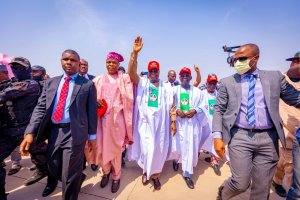
The success of Abubakar’s campaign is based on how he handled himself as a public service civil servant while in the government’s economic team from 1999 to 2007, when he managed banking, pension, and telecommunications sector reforms that created job opportunities and raised the economy of Nigeria.
Abubakar, running on a Peoples Democratic Party (PDP) ticket, is not a political guest, having served as vice president from 1999 until 2007 under President Olusegun Obasanjo.
Abubakar has been vying for the presidency since 1992. He lost party presidential primaries in 1993, 2011, and 2015 after being on the ballot in 2007 and 2019.
He is one of the founding members of the ruling party and a founding member of the All Progressives Congress (APC).
He is one of the most prominent critics and opposition leaders in Nigeria. Through his extended stay in the game, he has immersed the politricks of keeping himself in the political field despite all the dirt that comes with the game.
He has changed his political strategy from time to time to suit his interests and maintain relevance. Abubakar backed the nation’s power division in 2011 between its northern and southern regions. He benefited from it since he was a northern candidate contesting. But he opposed the same rotation concept in 2022 when it was the turn for the southern part to lead.
In the competition to succeed the current president, he is viewed as the main rival to Bola Ahmed Tinubu of the All-Progressives Congress (APC) and Peter obi of the Labor Party (LP), the leading contenders in the 2023 presidential polls.
Despite his long experience in politics, he has a rough path ahead of him because the two rivals are powerful politicians with their heads and souls on the seat. Abubakar has a sizable fan base, which his rivals must keep in mind if they hope to surpass him.
He comes from the north of Nigeria, which is vital in influencing the outcome of the elections as they command a large share of the total registered votes of about 55 percent, according to an update on voter registration from the Nigeria independent national electoral commission (INEC).
All factors considered, he stands a better chance if he can rally his northern region to vote as a block in favor of him. Abubakar has established a wide-ranging political network throughout the country since his political inception.
At one point, he had more state governors on his side than his former boss, President Obasanjo, with whom he had a falling out after he refused to endorse a constitutional change to extend presidential term limits. His ease securing a spot on the presidential ticket from major political parties demonstrates his political clout and strength.
Abubakar presents himself as a pro-business candidate, proposing privatizing the government-owned oil corporation and “restructuring” Nigeria to give the states greater control.
He has vowed to do away with oil subsidies put in place by the current regime in the first hundred days if he clinches power. Abubakar is banking on renegotiating with creditors to see how his government, if he wins, will restructure and reschedule repayments due to a huge national debt of $103 billion.
Additionally, he intends to reduce public sector budgets, which he has often referred to as expenditure, not in favor of development and economic revival, a path he is keen on reviving.
After witnessing Mr. Buhari oversee a period of economic stagnation and ethnic-racial charges in political appointments, he appeals to supporters who seek a recovery of the economy and national unity to rally behind him to make Nigeria great.
Despite his establishing the famed American University in Adamawa state, northern Nigeria, with a portion of his money to educate girls who have been preyed upon by Boko Haram, many doubt he is the right candidate to remedy Nigeria out of a poor and struggling economy, highly reliant on volatile oil revenue.
Critics view him as another example of the previous regime, symbolizing corruption and old-age power-hungry politicians.
His public service history is tainted with corruption allegations. He denied the claims and even offered to produce evidence to defend himself if required by the law.
The youth, who have mostly aligned with Obi, don’t see him as fit to rule and believe he will not focus on empowering them, despite their significant population in the country.
The Nigerian general election is scheduled for February 25th. Eighteen candidates are running for the presidency, but Abukara, Tinubu and Obi are considered the top three contenders.
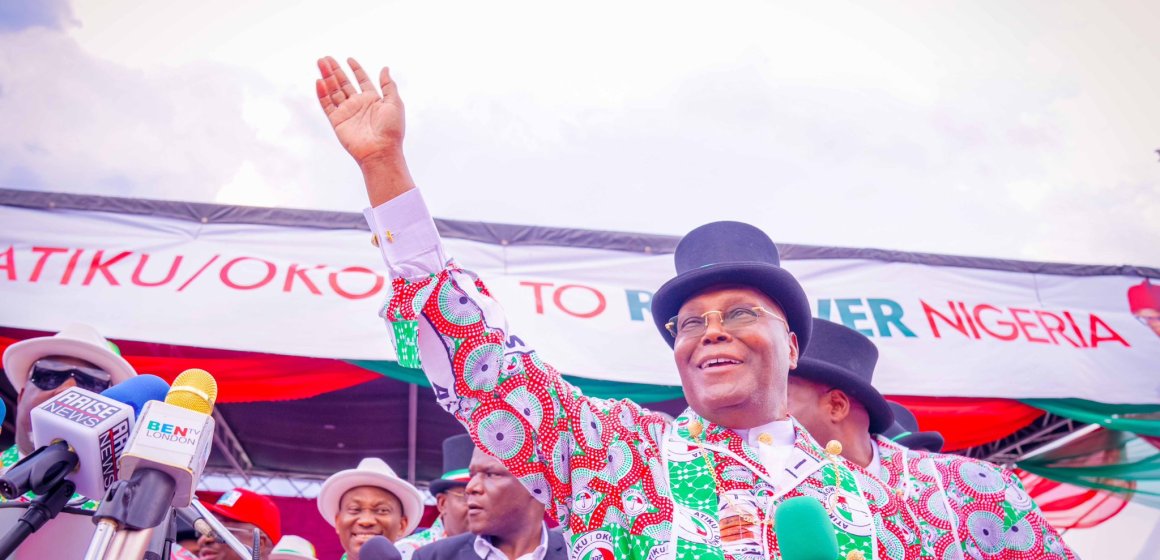



















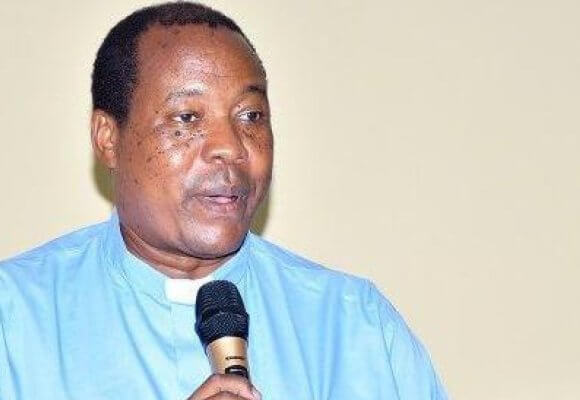
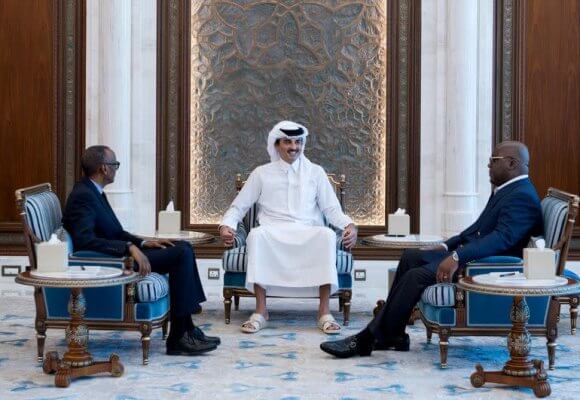
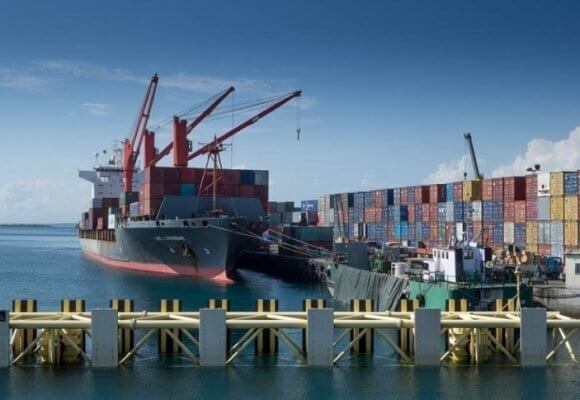
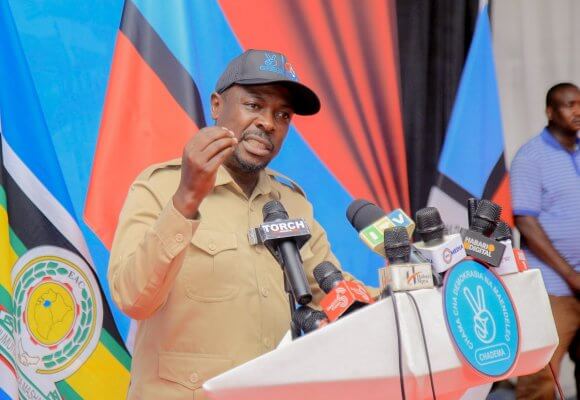
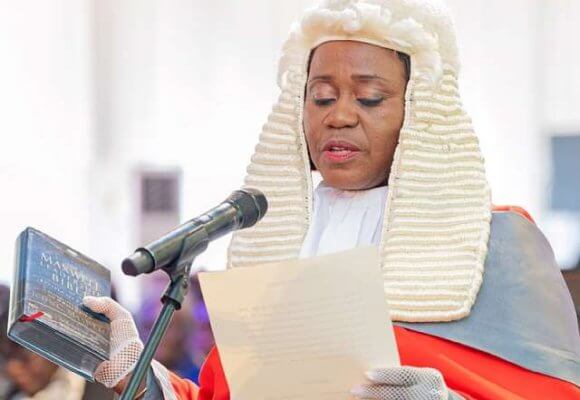
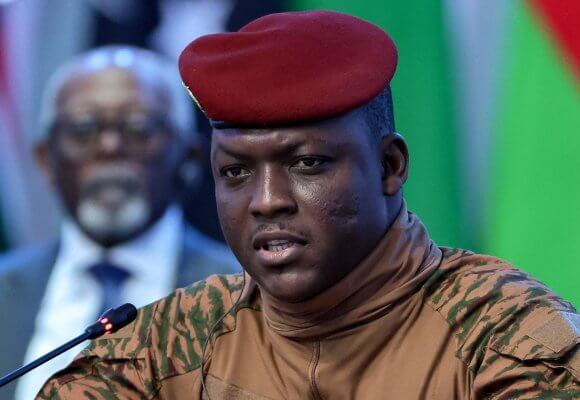

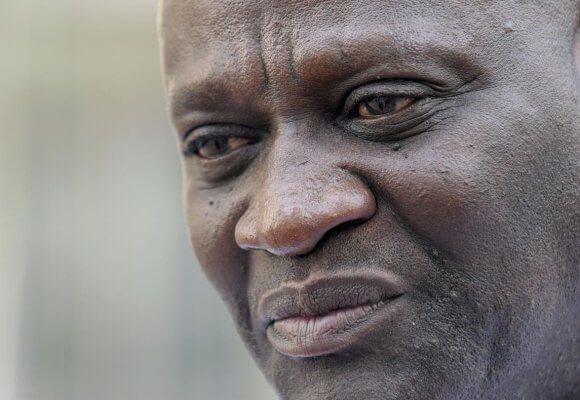
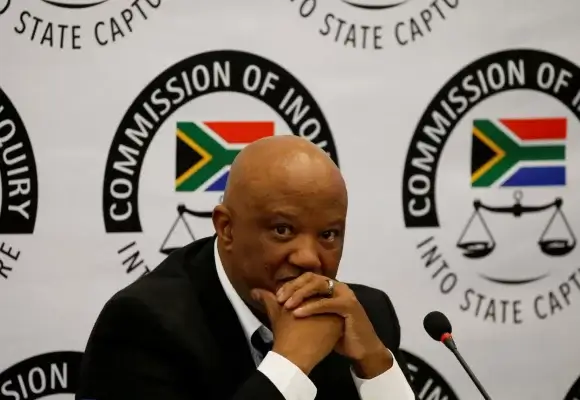
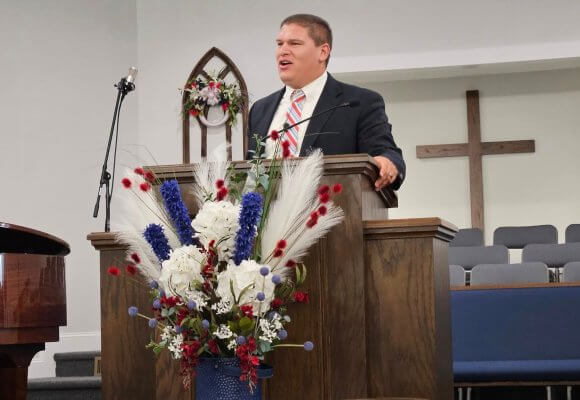
LEAVE A COMMENT
You must be logged in to post a comment.